Zoe Renee, daughter of rapper and musician Speech of Arrested Development, has been following her father’s footsteps in the spotlight while forging her own path as a breakout star in her role as Noni, the eager saxophone-playing freshman in BET’s The Quad. In fact, Georgia A&M University, a Historically Black College, saw a huge leap in enrollment applications because of its portrayal in the show.
Renee is fully aware of the show’s impact. “The Quad has done a lot, just to shine a light on how awesome [Black college life] is,” the Atlanta-bred star says. “Of course, there are the parties, and the quad, with everybody coming together and dancing together, sometimes during the day… That lifestyle truthfully — in Atlanta — is the heartbeat. It courses through all of Atlanta’s veins.” (The quad, short for “quadrangle,” is the nickname of the courtyard central to many college campuses.)
All-Black casts portraying collegiates on screen have been few and far in between, most notably seen prior in the hit sitcom A Different World and the Spike Lee film School Daze. Though The Quad wasn’t renewed for a third season, its spotlight on HBC life will hopefully make way for more representation in the years to come.
Although she’s disappointed the show wasn’t picked up for another season, Renee says her famous father is there to give advice. “He’s involved a lot in how I’m learning to move in this industry,” she says. “It’s really cool to have a dad that has been through a lot, and the things I have questions about — whether it’s contracts, or whatever, he knows the ins and outs of the industry.”
Speech’s guidance may have helped Renee choose her latest role, in the film Jinn, which challenges Islamic stereotypes. Renee portrays a carefree 17-year-old Black girl named Summer who is prompted to reevaluate her identity when her mother converts to Islam. She describes the film as the story of a mother and daughter coming together while also trying to figure out the meaning of life — a story of love, Black families, and inclusion.
The overall perception of Muslims in America can vary dramatically. A 2015 Public Religion Research Institute poll found 56 percent of Americans said the values of Islam are “at odds” with America’s values and way of life. When asked the reason why, many cited fear of terrorism (despite the fact that deaths on American soil almost always come at the hands of home-grown, white Americans).
However, according to a more recent PRRI poll, two-thirds (67 percent) “of people who talk with Muslims at least occasionally agree that Muslims are an important part of the American religious landscape.”
This highlights the importance of increasing Black Muslim representation in media. The more people realize they already know someone who is Muslim, the more accepting they are. And the Pew Research Center reports that one-fifth (20 percent) of the nation’s Muslims are Black.
Renee says in her hometown of Atlanta, the West End is a neighborhood with a strong Black Muslim presence. “I would see Black Muslim families regularly. It was always beautiful to me.” But, she admits, “Most of my knowledge had come from the news or the latest headline. And typically, those aren’t uplifting, good, or even accurate [portrayals of Muslims]. And so, going into [filming Jinn], I was very raw in my idea of the religion.”
Much of the solution comes from Muslims telling these stories themselves, so that they are depicted diversely and accurately. Typically, Muslims on TV are portrayed as antagonists or terrorists. Very rarely (if at all) are viewers exposed to the joys, careers, families, or the unique complexities of Muslims as individual people.
Nijla Mu’min, director and writer of Jinn, is hoping to create change by telling her own story as a Black girl suddenly having to switch to Islamic life. Renee says she felt nervous, knowing the story was close to Mu’min’s heart. “I felt pressure, but in the healthiest way. Pressure in making sure I did the work and making sure I was honest.”
Renee also hopes audiences see a wider connection in Jinn. “I hope [viewers] see humans when you look at this family. Even if their lifestyle, their religion, has zero correlation to yours, I hope that you see human beings and that you see love in that humanity.”


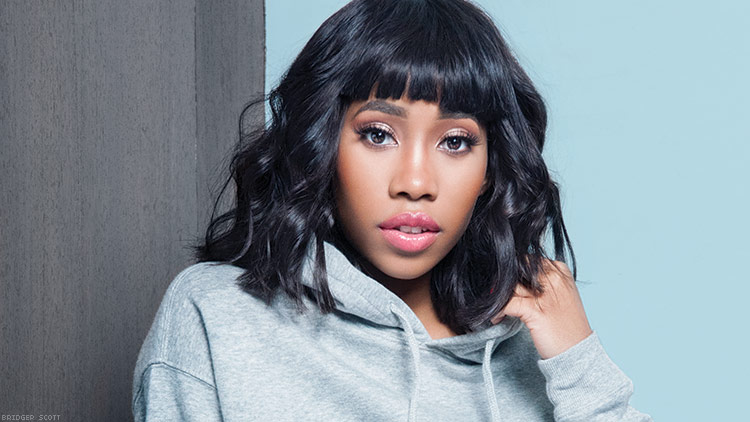


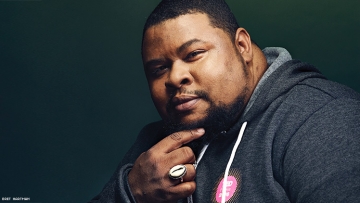
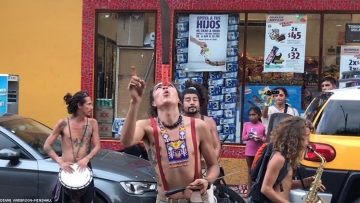
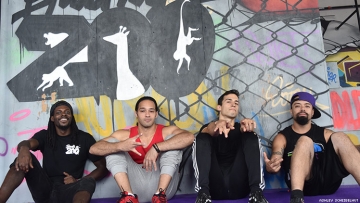
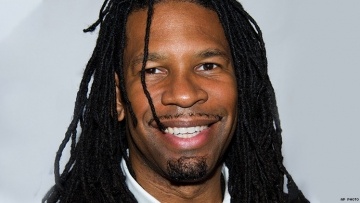


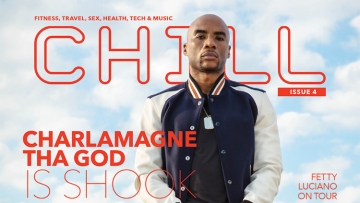
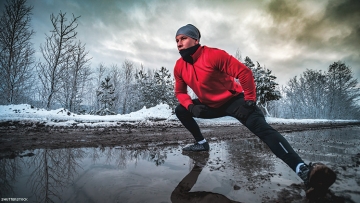


READER COMMENTS (